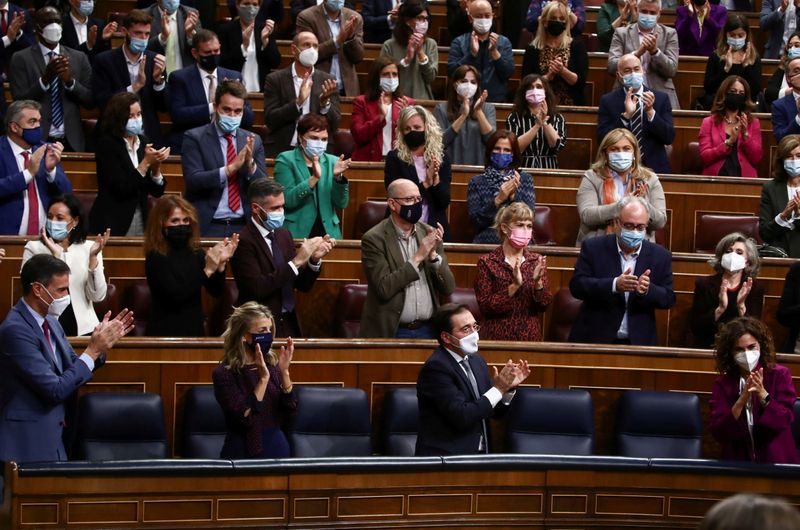MADRID (Reuters) - Spain's minority leftist government won enough support in the deeply fragmented lower house of parliament on Thursday to win approval for its planned budget, which now goes to the Senate.
The spending plan, which was voted article by article after clearing its first hurdle on Nov. 4 by 188-156 votes, is one of the largest in Spain's history, thanks to European pandemic recovery funds that will drive investment to 40 billion euros ($45 billion) next year.
It received the backing of 11 parties, most of them left-wing, while the main conservative opposition People's Party (PP), the far-right Vox and the centre-right Ciudadanos voted against.
Support from Catalonia's separatist left-wing party ERC was crucial in pushing the bill through the house.
It will now be debated in the upper house, or Senate, where parties can propose amendments, which, if approved, would require a final vote in the lower house next month.
If no new amendments are introduced, the Senate vote will be the last and the plan will become the second consecutive budget approved by the minority coalition government that came to power in January 2020.
Many analysts believe the green light for the plan to be a litmus test for how long Socialist Prime Minister Pedro Sanchez's coalition with the hard-left Unidas Podemos can last. Sanchez has always said he can govern the full four-year term.
The Spanish economy is bouncing back after a record plunge of 10.8% last year, although at a slower pace than expected. Recovery hopes are set for 2022, but high inflation and global trade bottlenecks cloud projections.

The European Commission now expects Spain will grow 5.5% in 2022, versus previous 6.3%, but the government has so far stuck to its upbeat forecast of 7% growth next year.
($1 = 0.8919 euros)